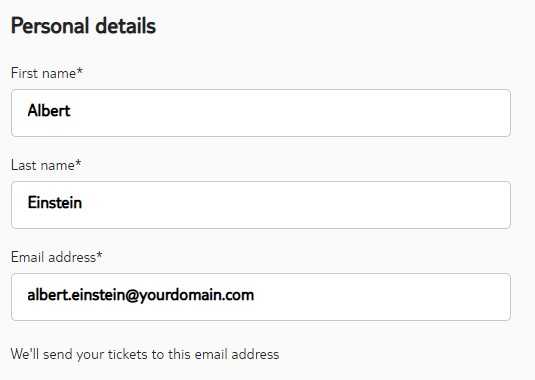Customer data
You can include customer info in a deep link to help pre-fill fields required at payment.
When providing sensitive customer info, you must take steps to encrypt their data. Partners wishing to submit customer data through deep links will receive an encryption key.
Parameters
The following customer parameters are accepted:
-
customer_email: The customer's email address. -
customer_loyalty_number: The customer's loyalty program number (if any) as an alphanumeric string. -
customer_name: The customer's first name. -
customer_surname: The customer's last name. -
promo_code: A code for discounts.
Encryption process
To properly encrypt customer data, take the following steps:
- Serialize the object.
- Encrypt the serialized object using the CTR-AES256 encryption algorithm and provided encryption key.
- URL encode the encrypted result.
-
Add the result to the query using the
msmCryptparameter. We strongly recommend using this parameter with a destination parameter .
When the user reaches the payment page on the white label platform, their information will already be filled in:

JavaScript libraries
We have developed a universal library for our partners which can be used with NodeJS or a basic JavaScript client.
We have also set up a full example which uses our library and builds a valid URL.
PHP class
We provide a PHP class for our partners which can be used to encrypt customer data:
class GoTuiDeepLinkDataEncrypter
{
const AES_KEY = 'LI2wmCDSR-xxxxxxxxxxxxxxxxxxxxxxxxxxxxxxxxxxxxx';
/**
* TUI DX Data Sharing Specification 26.3.2022
* 1. Serialize the object
* 2. Encrypt the result using the AES-CTR 256 encrypt algorithm
*
* @param JsonSerializable $deeplinkData
*
*/
public function encrypt(JsonSerializable $deeplinkData): string
{
$plainText = json_encode($deeplinkData->jsonSerialize());
$key = $this->base64url_decode(self::AES_KEY);
$iv = str_repeat("\0", 16);
$encrypted = openssl_encrypt($plainText, 'aes-256-ctr', $key, OPENSSL_RAW_DATA, $iv);
$encrypted = utf8_encode($encrypted);
return $this->encodeUriComponent($encrypted);
}
private function base64url_decode(string $data): string
{
return base64_decode(str_pad(strtr($data, '-_', '+/'), strlen($data) % 4, '=', STR_PAD_RIGHT));
}
/**
* see http://www.rither.de/a/informatik/php-beispiele/strings/urls-encodieren-und-decodieren/
*
* @param string $str
*
* @return string
*/
private function encodeUriComponent(string $str): string
{
$search = ['%21', '%2A', '%28', '%29', '%27', '%7E', '%uFFFD'];
$replace = ['!', '*', '(', ')', '\'', '~', '%EF%BF%BD'];
$subject = rawurlencode($str);
return str_replace($search, $replace, $subject);
}
}